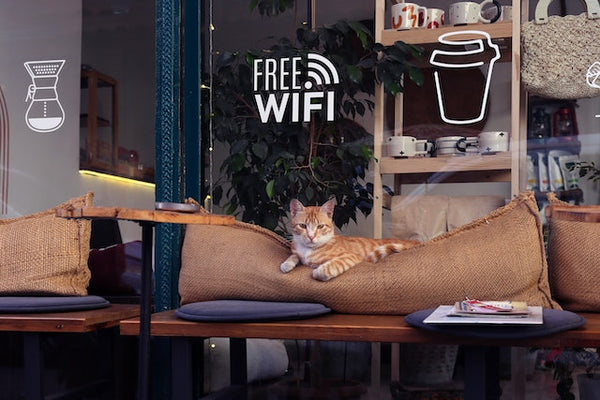
In recent years, Malaysia has seen a surge in the popularity of cat cafes, joining the global trend of combining coffee culture with feline companionship. These unique establishments offer a cozy environment for patrons to sip their favorite brews and enjoy the company of resident cats. While cat cafes have gained a devoted following in Malaysia, they also come with their fair share of advantages and disadvantages. In this blog post, we'll explore the pros and cons of cat cafes in Malaysia.
Top 5 Pros:
-
Stress Relief: Spending time with cats has been scientifically proven to reduce stress and anxiety. Cat cafes provide a sanctuary for those looking to unwind after a long day, making them an ideal escape from the hustle and bustle of city life.
-
Adoption Opportunities: Many cat cafes collaborate with local animal shelters to host adoptable cats. This creates a win-win situation as these cats get a second chance at finding loving homes while patrons can adopt a new furry family member.
-
Social Interaction: Cat cafes encourage socialization among visitors. The shared love for felines often leads to conversations and the formation of friendships among strangers who might not have interacted otherwise.
-
Education and Awareness: Cat cafes raise awareness about responsible pet ownership. They often display information about cat care and hygiene, promoting the welfare of cats in a country where pet education is sometimes lacking.
-
Themed Atmosphere: Many cat cafes in Malaysia boast charming and unique decor that enhances the overall experience. Whether it's a Japanese-inspired interior or a whimsical fantasy theme, these cafes create a memorable atmosphere for patrons.
Top 5 Cons:
-
Allergies and Hygiene: Cat cafes can pose a problem for individuals with allergies to pet dander. Despite regular cleaning, the presence of cats in an enclosed space increases the risk of allergenic reactions.
-
Sanitation Challenges: Maintaining a clean environment in a cat cafe is no small feat. With litter boxes, fur shedding, and the occasional accidents, it requires rigorous sanitation protocols (which can be very expensive to maintain!) to prevent odours and health hazards.
-
Limited Regulation of Patron Entry: Some cat cafes do not effectively limit the number of patrons entering the establishment, potentially disrupting the cats' environment. Not all cats in these cafes are inherently social with humans, and when there is an excess of visitors, it can create stress for these more reserved feline residents. Moreover, the presence of unsupervised or overly excited children can pose a risk, potentially leading to unintended harm to the cats.
-
Potential Exploitation: Some critics argue that cat cafes may exploit cats for profit. Concerns about the welfare of cats and whether they are stressed or overworked in such an environment are raised by animal welfare advocates.
- Unknown Lives of Cats After Closure: An often-overlooked con of cat cafés is the fate of the resident cats if the cafe were to close down. While some cafes have successful adoption programs, others may struggle to find suitable homes for their feline residents. This situation could potentially contribute to more cats being abandoned or placed in shelters.
In conclusion, cat cafes in Malaysia offer a unique blend of relaxation, companionship, and a chance to give shelter cats a brighter future. While they provide a haven for cat lovers and potential adopters, they also present challenges related to hygiene, space, and animal welfare. For those considering a visit to a cat cafe, it's essential to be mindful of the pros and cons and ensure that the welfare of the cats is a top priority for the establishment. Ultimately, the experience of sipping coffee in the company of furry friends is a delightful one, but responsible management is crucial to strike the right balance.
